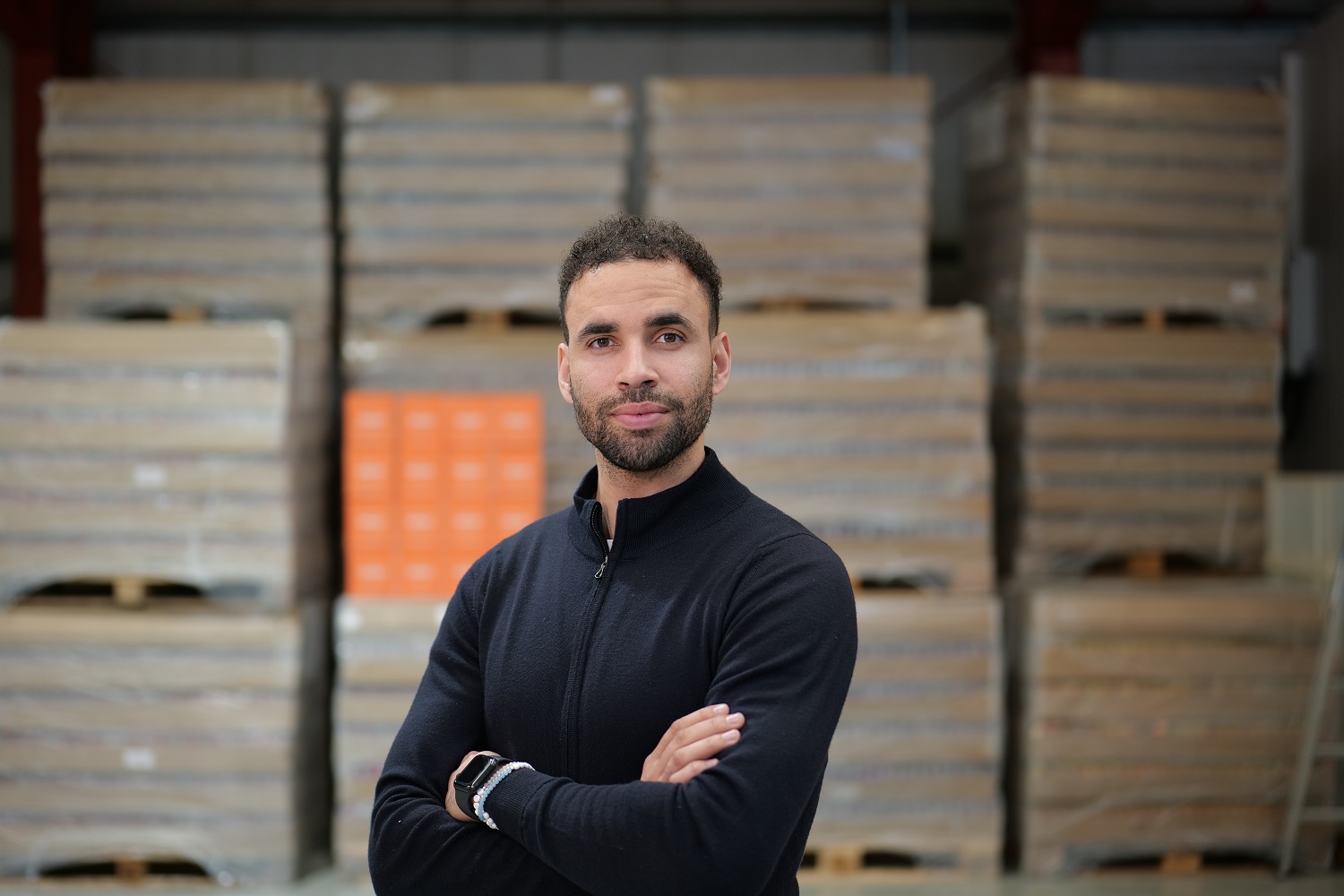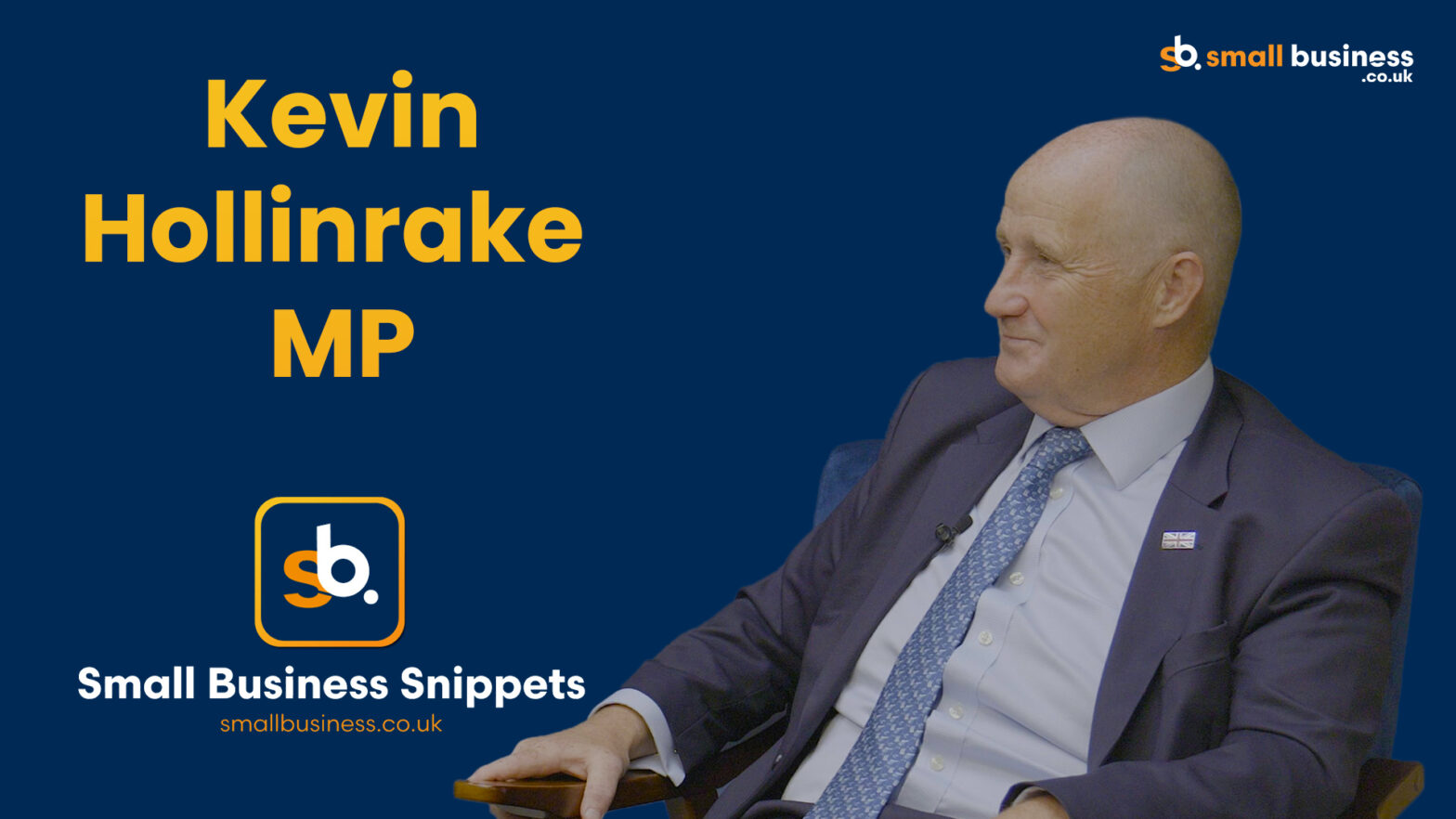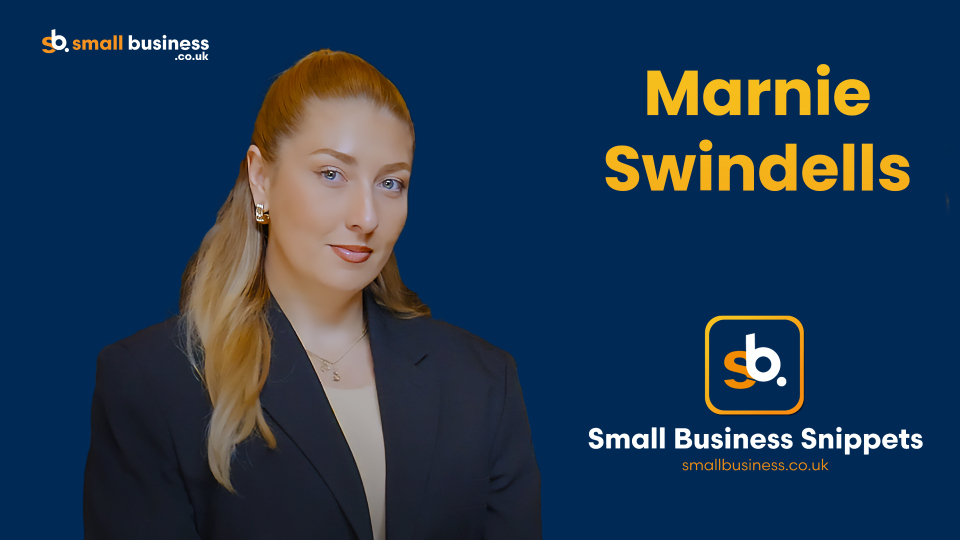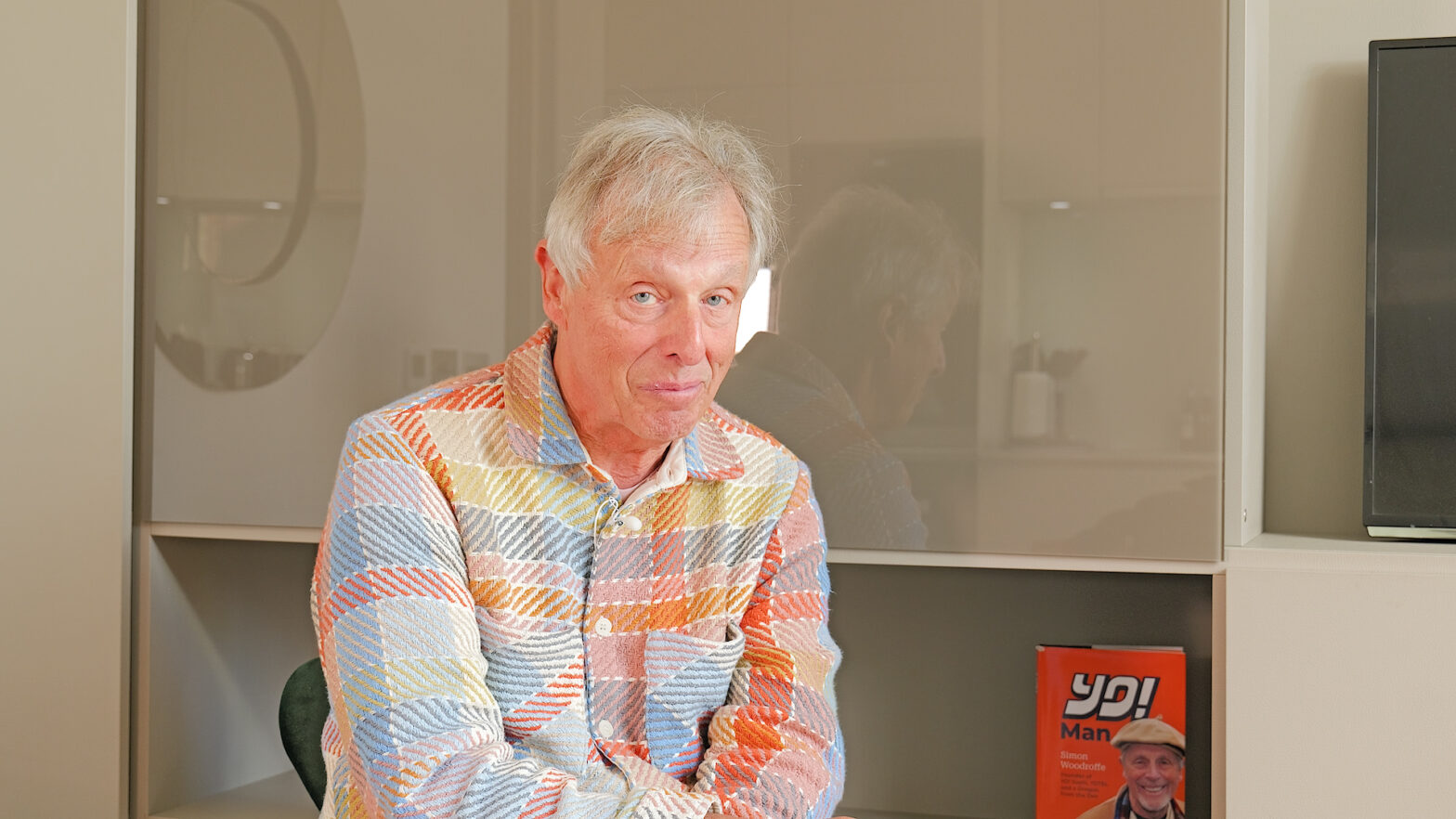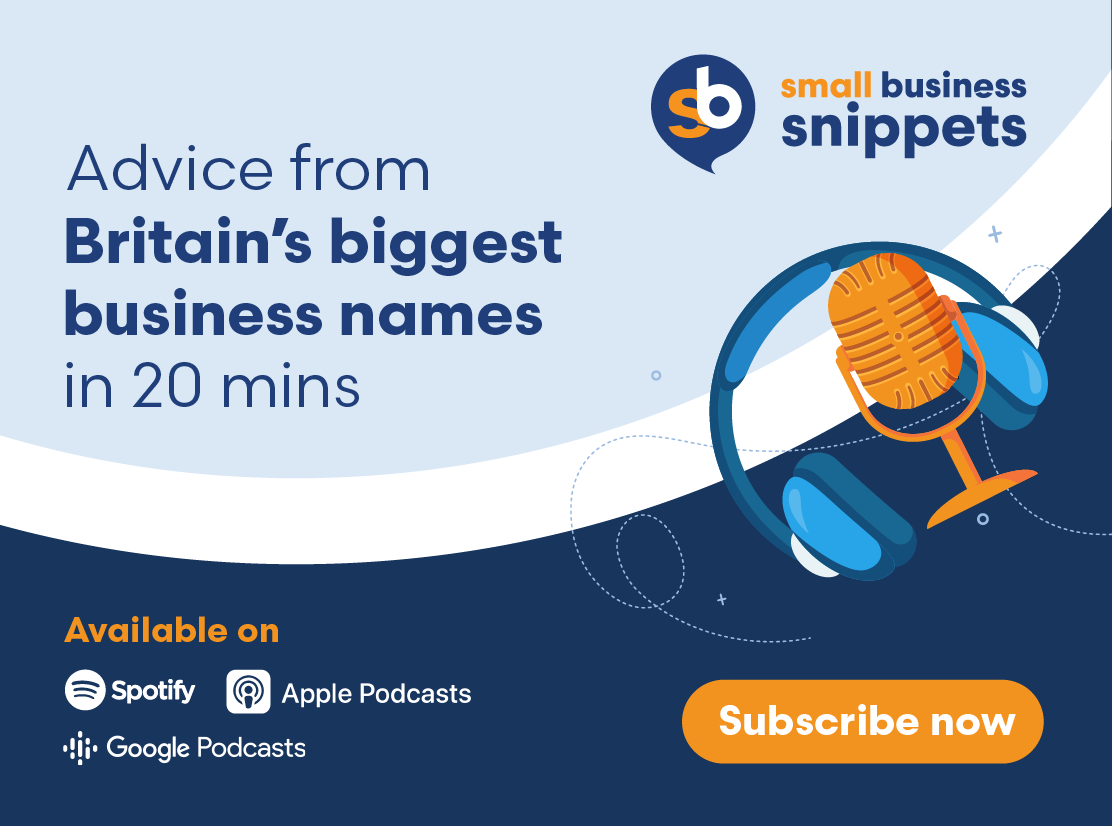Welcome to Small Business Snippets, the podcast from SmallBusiness.co.uk. Today’s guest is Thomas Hal Robson-Kanu, professional footballer and founder of The Turmeric Co.
We discuss the challenges of starting a raw liquid food business and taking it to international markets.
Listen to it in the media player below.
You can watch a couple of teaser videos below.
You can also catch our episodes with:
- Myleene Klass and Jamie Barber, founders of My Supper Hero
- Pub owner and winner of The Great British Bake Off, Candice Brown
- Entrepreneur and former athlete, Sally Gunnell
- Entrepreneur and The Apprentice winner, Sian Gabbidon
- Abel & Cole founder and chairman of Freddie’s Flowers, Keith Abel
- Entrepreneur and The Apprentice 2019 winner, Carina Lepore
- Dragon Tej Lalvani and entrepreneur Sam Jones
- Angel investor, entrepreneur and TV personality, Spencer Matthews
- Entrepreneur and former Dragon on Dragon’s Den Ireland, Lady Chanelle McCoy
- Businessman and The Apprentice winner, Mark Wright
- Entrepreneur and campaigner, Paul Lindley
- Managing director of Brompton Bikes, Will Butler-Adams
- Businessman and author, Gerald Ratner
- Entrepreneur and TV presenter, Trinny Woodall
- Pub owner and bartender on Channel 4’s First Dates, Merlin Griffiths
- Founder and chairman of Pimlico (formerly Pimlico Plumbers), Charlie Mullins
- Retail expert and former Dragon, Theo Paphitis
- Author and boardroom expert, John Tusa
- Digital guru and investor, Sherry Coutu
- Entrepreneur and former Dragon, Rachel Elnaugh
- Businesswoman and Dragon, Deborah Meaden
- Entrepreneur and The Apprentice 2005 candidate, Tim Campbell
- Gousto CEO, Timo Boldt
- Entrepreneur and The Apprentice 2018 candidate, Jackie Fast
- Investor and former Dragon, Piers Linney
- Investment fund manager, Nicola Horlick
- Supermodel turned entrepreneur, Caprice
We’ve got podcast episodes from the first series looking at:
- How one business owner’s mental breakdown caused her to see trolls from her past
- How one entrepreneur hired a videographer to track their every move and build their business brand
- How funding a business led one entrepreneur to stress-related alopecia
- One entrepreneur’s first professional public speaking engagement
- Adapting to UK life and learning English before starting a business
- Securing seed funding
- Finding the perfect head of customer care
- Reaching a £1 million annual rate of return
- Boosting client numbers from 30 to 850
- Starting a brand new business from scratch
To find out more about Small Business Snippets, you can download the trailer.
If you want to listen to the podcast elsewhere, it’s available on Apple Podcasts, Google Podcasts and Spotify. Watch the new video versions and subscribe over at our YouTube channel. It’d also be great if you could leave us a review.
Remember to like us on Facebook @SmallBusinessExperts and follow us on Twitter @smallbusinessuk, all lower case.
Want to read Thomas Hal Robson-Kanu’s podcast interview instead?
Hello and welcome to Small Business Snippets, the podcast from SmallBusiness.co.uk. I’m your host, Anna Jordan.
Our guest today is Thomas Hal Robson-Kanu, entrepreneur and professional footballer. He has made over 400 appearances for Reading, Swindon, South End, West Brom, England and Wales, scoring ‘that goal’ against Belgium in Euro 2016.
Before his career took off, Thomas sustained two heavy cruciate ligament injuries. The painkillers he was taking were having adverse effects, so he and his father set out to find a natural remedy and learned of the anti-inflammatory properties of turmeric which he started taking in shot form. He went on to become a professional footballer after being told by doctors that such a career was out of the question.
Thomas decided to take the turmeric shots recipe and turn it into a business. Sales for The Turmeric Co have increased by 600 per cent over the past year and the team has quadrupled.
We’ll be talking about the challenges of setting up the company and expanding into different countries.
Anna: Hi, Thomas, how are you?
Thomas: Hi, Anna. I’m good. Thank you. How are you?
Anna: Yeah, not bad. Not bad at all.
As we touched on in the intro, there’s a little bit alluding to how The Turmeric Co came about. Could you tell us a bit more about how the company and how the shots came to be?
Thomas: We launched The Turmeric Co in 2018. Essentially, what we did was we aimed to bring a range of highly functional natural shot blends, which my father had created a decade earlier, to market. We realised that there were a number of consumers purchasing within this shot category of functional shot beverages in the form of liquid foods. The quality on the market wasn’t what it should be, and it wasn’t anywhere near the quality of the product that we were using as a family-made recipe. The blend itself is something which I had used, as mentioned, a decade earlier, to support my own recovery from surgeries I’d had as a teenager.
We realised that if we could bring this to market at scale, we could also impact positively a lot of different people in all different walks of life, to allow them to live a healthy and active lifestyle. So we had to build a bespoke manufacturing facility, in order to scale up our production of these high-quality shots. Then we had to build a logistics infrastructure and a framework within the business sitting under the brand, to allow us to deliver the product direct to consumers in a chilled format throughout the UK.
We successfully achieved that in 2018, launched the business and we built the business and the brands very much as a digitally native vertical brand. So very much around that online customer experience, ensuring that we could educate the customers as well, to take them through the journey of living a healthy and active lifestyle. With that we built a really strong subscription model online. And yeah, we’ve obviously grown year-on-year since launch, we’ve built the business off of three main skews in our range. We’re in a position now where we’re looking to upscale, again, continuing to deliver the product throughout the UK and explore international opportunities of distribution as well.
Going back to where you started, what kind of challenges or difficulties did you have starting and running the business in the early days?
Thomas: So typically, when brands set up, they set up just as that – as a brand, so a sort of brand in the sales channel. But we had to become a beverage manufacturing business as well as a brand. We almost set up two simultaneous business models, which were obviously intertwined, to allow us to deliver the quality of products that we envisaged delivering. And so that was the first challenge in terms of that whole infrastructure – understanding how to manufacture, the accreditations associated with that.
Once we achieved that, which took around two years of research and development to achieve, we then launched the brand. The biggest element and challenge that we faced as a brand was really about differentiating our product with others on the market. Because, sitting on the shelf, it’s very hard to distinguish the differences or the USPs (unique selling points) in what we would see as a really high-quality product in ours, versus a relatively lower-quality product and a less effective product, which maybe contains apple juice, orange juice, water – or it doesn’t have as much of the functional raw ingredients of the turmeric and the ginger roots. It was really just about how we can differentiate that and communicate that to consumers and to the market.
We really did a lot of research, we worked hard in terms of our branding and messaging around the product. The key element for us was building that online store and that online eCommerce platform, which allowed us to really educate consumers and take them on that journey. As we said, we’ve built a really strong network – a really strong community – all focused around healthy and natural living through high-quality nutrition. We were looking to reach as many people as possible with the range and to support people in all different walks of life.
How about expansion as you’re seeing into the future and going internationally? What kind of challenges do you envisage there?
Thomas: So again, because the product is fresh, it’s raw, it has to be chilled. We have to deliver a chilled distribution chain wherever we go. Whether that’s the last mile to consumers, we had to build the boxing and the packaging in a way where the product was insulated and chilled. The biggest challenge that we obviously face is around how we maintain that chilled distribution chain throughout the product lifecycle. And yeah, it’s an additional element.
Again, it’s when you look at sort of products on the market, there’s a lot of ambient shot products, and that’s achieved through pasteurisation. But if you pasteurise a product, particularly a natural product, you’re compromising up to 90 per cent of the nutritional value of the product. Elements such as that are really important where we could be ambient, and we could have a shelf life of over a year on the product. But actually, the purpose and the benefit of the product would be severely compromised. We decided not to go down that route. It wasn’t just about mainstream distribution. It’s about delivering a high-quality shot format to people in a convenient fashion and that’s what we’ve achieved. But now, as you said, scaling that beyond, particularly looking at international markets, the challenge is obviously maintaining that quality and that level of distribution throughout.
Yeah, absolutely. In terms of the shot form, I’ve seen a little bit of pushback from consumers saying that they would like something, say, in a bigger bottle, perhaps with less plastic or something longer life. What would you say in response to them?
Thomas: Yeah, so again, it’s all about the quality of the product that we deliver. And so we cannot use glass bottles, because we don’t pasteurise our product. So we couldn’t move to glass bottles. But as I said we would be compromising the products effectiveness by up to 90 per cent. So what we’ve done as a brand, and as a business, is we’ve embedded sustainability initiatives at our core. So as an example, all of our bottles are made from 25 per cent biodegradable and 75 per cent recycled plastic. We also have just launched a recycling returns initiative, which allows customers to return their plastic bottles, as well as the boxing and insulation directly to us free of charge.
Where we’ve obviously got a subscription model, the way that that works is on the customer’s next delivery, all they have to do is hand back the box with the bottles and the packaging, to the courier and it will be couriered back to us. And what we’re working on doing now is bringing those used bottles back into our supply chain. We’re looking at a deep sterilisation, a deep cleaning process where we can then reuse those bottles. And what that’s allowing us to do is and negate that level of single-use plastic, which obviously is very damaging to the environment, where we’re essentially saying every single one of our bottles can be used multiple times by participating in this recycling returns initiative. It’s something we’re really proud of. As I said, sustainability is at our core. And we’re seeing fantastic feedback from our customers, and more importantly, fantastic participation in the initiative as well.
For our listeners who perhaps are thinking of having a business with a kind of recycling scheme, and what can they expect in terms of costs to set one up?
Thomas: In terms of the recycling scheme, like it’s obviously working collaboratively with the couriers. We worked really hard with all of our couriers to make sure that they’re aligned with our initiatives and with our values to facilitate that sort of level. Now, again, that recycling returns initiative comes at a cost. But that cost is something that we absorb as a business, that we embed into our infrastructure and into our model. But again, it’s not for all businesses, because I think we’re probably one of the only UK-based businesses who really deliver that initiative as a fundamental part of their core. But the impact that it has not only on the environment, but also on the community and the understanding of our brand values is massive because it shows and proves that we’re taking sustainability seriously and we’re really taking forward-thinking steps to facilitate that as well.
Entrepreneurship is quite a common career path for footballers after they retire, why do you think that is?
Thomas: Yeah, I think there are certain challenges which come with entrepreneurship, which are aligned with elite sports. In terms of elite sports, you have to have a high level of competitiveness, that you have to continually deliver and strive towards achieving something. That’s very much similar in terms of entrepreneurship. You’re always going to face adversity challenges, but it’s how you overcome those, how you deal with those and how you can always make the best possible outcome out of that adversity. There are definitely a lot of synergies in that. Also, there’s lots of risks involved in businesses, particularly when you’re trying to deliver such a niche product into a new growing category.
But the rewards certainly are there. The rewards for us [The Turmeric Co] are receiving today over 10,000 positive customer reviews on our range. We’ve positively impacted 10,000 people enough for them to go and write a testimonial and tell us about their own experience. That’s the reward – positively impacting people’s lives. Particularly in this day and age, when there’s so much spoken around health, nutrition and wellness. It’s really an important topic, and you see it in terms of the HFSS regulation, the high fat sugar and salt regulation coming into play now, which, again, I’m very actively outspoken about, because the impact that snack foods, fast food, junk food, highly-processed foods are having on our society, but more importantly, having on future generations is now more prevalent than ever.
An example of that is that since lockdown has finished, one in four children are leaving primary school obese and that that is fundamentally due to nutrition and to the food choices that families and kids are making. Clearly this needs to be changed, there needs to be steps towards positive, healthy lifestyles. And for us at The Turmeric Co, we’re massively passionate about that, and a driver towards that change.
Yeah, I’ve read on your website that you’re passionate about educating the future generation. So how would you guys personally go about doing that?
Thomas: Yeah, so an example of that is that a number of our partnerships with elite sports across different sports sectors. We’ve partnered with over 20 professional sports teams, to build awareness through our partnerships with them on healthy living, healthy, nutritious options and, obviously, the power and the effectiveness of raw functional ingredients, such as fat, such as ingredients found in our range. And building awareness through those partnerships, as opposed to the high-fat, high-sugar, high-salt brands who have a monopoly. You take, for example, McDonald’s, Coca Cola, all of these are highly processed, high-in-fat, high-in-sugar foods, which are ultimately damaging health of society. Their snack foods, and everyone’s allowed a snack – I love snacks as well – but it’s not a staple part of my diet. The issue is that because they’ve had the monopoly for such a period of time, in terms of marketing, advertising and basically being able to control the attention of the masses, through various campaigns, TV campaigns, out-of-home campaigns, partnering with sports organisations. An example of that is in the World Cup. The World Cup final – over a billion people watch that – and the main sponsor of that is Coca Cola. It’s like, of course, when that’s the case, the young kids are going to be more predisposed to wanting these snacks as staple parts of their diets and their nutrition. So as I said, we’re fundamental drivers in making that change, and building awareness to consumers in all different walks of life to have healthy, nutritious options.
I understand that The Turmeric Co isn’t your first foray into business. You had a business previously with your brother called Sports Ledger. Could you walk us through a journey of that business and the lessons that you took into The Turmeric Co.?
Thomas: Yeah, so again, I’ve very much been involved in entrepreneurship throughout my life. I’ve been involved in a number of different businesses, in various different sectors. Sports Ledger was very much around digitising data – sports data – using blockchain technology.
I would say that, in terms of the market, that was very niche, and very early on in terms of that technology, and that technology is very much still developing, but it was a fantastic experience and lots of great learnings in terms of building a team and building the data behind it. And for now, what we’re doing at The Turmeric Co very much is around data and understanding our consumers wants and needs, through their purchasing patterns and to their interactions with the brand. You can really leverage data to offer a really heightened customer experience and tailored customer journeys to really educate them on the path and for us now, obviously, through nutrition and through our range, we can tangibly see that. Yeah, it’s really, really good and great experiences for sure.
Blockchain is pretty popular among footballers. Do you think that it is shaping business and will continue to shape small businesses into the future?
Thomas: Yeah, I think it’s still very early in terms of sort of blockchain technology, it’s a developing space, similar to what the internet was, back in the early 90s, in terms of digitising data, digitising exchange of information. And all blockchain technology is doing is digitising currency. So, being able to exchange currency exchange value across the internet, in a secure manner. But in terms of the development of that technology, it’s still very much early days, there’s obviously a lot of hype around it, particularly things such as NFTs now, there’s a massive furore around it. But it’s more about the fundamentals, and the fundamentals are very early still. There’s a lot of development required in the space. If it continues to develop over time, then then certainly it’s going to be technology which will be adopted by the masses.
Do you think the Metaverse, for example, will accelerate that?
Thomas: Yeah, again, it’s all innovation and technology, and it’s there now. It’s simply around adoption. It just depends – the barriers for entry as they begin to be broken down; the barriers of education as they begin to get broken down, more and more people will be accustomed to it and adopt it. So, yeah, it’s certainly an interesting space, one which I’ve been involved in from very, very early on and have been fortunate enough to have done that. So, yeah, it’s nice to see that that area developing as we speak.
What kind of resources would you recommend for small business owners who are interested in blockchain and how it’s developing and how maybe they can apply it within the business?
Thomas: Yeah, as I said, I think the infrastructure is still in development, so I wouldn’t say there’s particularly significant use cases now. But given that the internet as it is, there’s a lot of infrastructure, whether it’s payment gateways, things such as PayPal, Stripe, etc. That infrastructure is very good currently. There’s not a massive need to move over in terms of moving to a digitised currency in the space at this moment in time. But, yeah, I think, as I said, there’s a lot of development required within the space. I know there’s a lot of work ongoing, but I think that that will ultimately just take time, but yeah, standard methods of transacting in this day and age are more than sufficient.
What we’ve done with our own online store, we’ve built a very robust infrastructure in terms of utilising platforms such as Shopify Plus, utilising platforms such as Yocto (an open-source, build your own Linux programme) to drive referrals, drive loyalty points, and obviously, driving into SMS and email marketing as well. So, those infrastructures are all in place and can be utilised and I think that certainly should be the first point of call for any entrepreneur looking to enter into the eCommerce landscape.
Okay, actually, something’s just jumped to my head. Yeah, The Turmeric Co does turmeric tokens as well. Was the thinking behind it some sort of an alternative trade? So rather than money, people can read blogs or leave a video review. What was the thinking there?
Thomas: Yeah, so it’s just a way to reward customers and we use Yocto a lot in rewards for that. It’s basically a loyalty mechanism for customers who are engaged with us. So, as they make purchases, they are rewarded with tokens, tournament tokens, and then those tokens are then redeemable in store. So, for our loyal customers, they’re continually getting rewarded for purchasing with us and will receive things like different discount rewards, merchandise, so it’s a really unique way to build community and advocacy through those most loyal customers.
Anna: Alright. Well, I think that’s it for me. Thank you ever so much for coming on the podcast, Thomas. It’s been great.
Thomas: Excellent. Thank you so much. Absolute pleasure.
You can find out more about The Turmeric Co at theturmeric.co. You can also visit SmallBusiness.co.uk for more articles on starting a business. Remember to like on Facebook @SmallBusinessExperts, on Twitter @smallbusinessuk (all lowercase) and subscribe to our YouTube channel, linked in the description. Until next time, thank you for listening.
